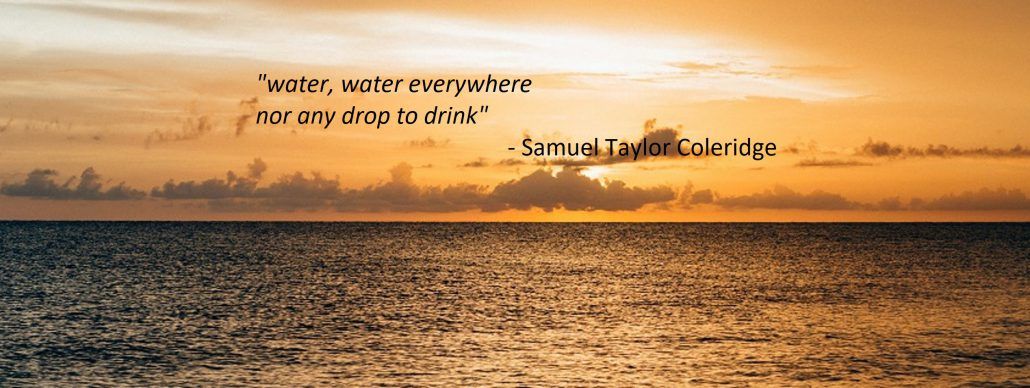Image by Josh Sorenson on Pexels
I recently read an article by Jacques Laubscher on desalination which is what inspired this blog on the sustainability of the desalination of seawater. This is an important issue, because for continued food production, water is an essential input. The rainfall in South Africa has been so sporadic that we can’t continue putting all our eggs in this basket. To keep the crops green, the desalination of seawater comes up more and more often as a possible solution, but how sustainable is it?
Though abundant, seawater has a high salt content making it unsuitable for human and animal consumption and causing it to have adverse effects on the health of one of the primary resources necessary for agriculture: soil. The only way to make seawater suitable for both consumption and agricultural use is through desalination, which uses either reverse osmosis (the use of semi-permeable membranes to remove salts1) or thermal desalination (the process of evaporation and condensation to remove salts2). As with most big words, they are as expensive as they sound, with thermal desalination costing four times more than reverse osmosis and reverse osmosis costing two times more than conventional treatments of freshwater sources3. Desalination would alleviate our water-related challenges, but with every rose, comes thorns. Not only does building a desalination plant require hefty capital investment, there are also monthly maintenance costs and high electricity inputs (which is a challenge on its own). The input costs of desalination, will reflect in our water bills and consequently in food prices. Catch 22: We need the water, but can we afford it?
Desalination is a solution to the looming water crisis, but its economical sustainability remains questionable. While the water authorities look into new ways of increasing water supply, we should strive to manage the little water we still have as efficiently as possible. This means minimising our water use as far as possible, making sure our soils are healthy enough to store water and preventing water wastage like leaks as far as possible. Let’s make every drop count!
References:
- https://en.wikipedia.org/wiki/Reverse_osmosis (Accessed 19 September 2017)
- http://www.ide-tech.com/solutions/desalination-2/thermal-desalination-med-mvc/ (Accessed 19 September 2017)
- http://www.infrastructurene.ws/2017/07/31/getting-serious-about-desalination/ (Accessed 18 September 2017)
- Meet Adele Bain: The trendsetting, animal-loving dairy farmer - 2017-12-05
- Breaking the wind for increased pasture wellbeing - 2017-11-30
- Mutualism:What benefits the land, benefits us - 2017-10-30

